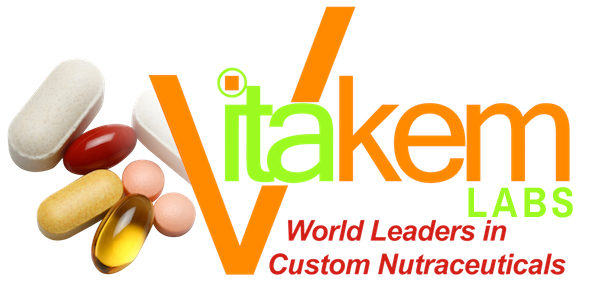Introduction
E-commerce has transformed the way businesses operate, offering unparalleled opportunities for private label supplement brands to tap into a growing and highly profitable market. As health-conscious consumers increasingly turn to online platforms for their dietary and wellness needs, the private label supplement industry continues to experience exponential growth. However, successfully selling supplements online requires a multi-faceted strategy that incorporates digital marketing, branding, and customer engagement. Brands need to differentiate themselves from competitors, establish credibility, and develop a seamless customer experience to build long-lasting relationships with their audience.
This comprehensive guide provides actionable strategies for effectively leveraging e-commerce to market and sell private label supplements. Whether you’re just starting out or looking to scale your existing online business, these strategies for selling private label supplements online will help you optimize your approach and maximize profits.
1. Build a Professional E-commerce Website
A well-designed e-commerce website serves as the foundation of your online business. It acts as your virtual storefront and must create a strong first impression to capture the attention of potential customers. Your website should not only reflect your brand identity but also provide a seamless shopping experience that makes purchasing products quick and hassle-free.
Start by choosing a platform like Shopify, WooCommerce, or BigCommerce, which are known for their ease of use and scalability. Ensure that your website is mobile-friendly, as a significant portion of online shopping is done through smartphones and tablets. Incorporate intuitive navigation, clear product categories, and easy-to-read descriptions to guide users effectively.
Security is another crucial element. Implement SSL certification to secure transactions and build trust with your customers. High-quality images, videos, and interactive features can further enhance your site’s appeal and keep visitors engaged. Additionally, integrating customer reviews and testimonials on your website provides social proof and reinforces product credibility.
2. Optimize Your Website for Search Engines (SEO)
Search engine optimization (SEO) plays a pivotal role in driving organic traffic to your website. With effective SEO practices, your website can rank higher in search engine results, making it easier for potential customers to find your products.
Start by conducting keyword research to identify high-volume terms related to private label supplements and trending health topics. Use these keywords strategically in meta titles, meta descriptions, headings, and throughout the content on your website. Additionally, optimize product pages by including detailed descriptions, ingredient lists, and usage instructions that address customer queries.
SEO also involves creating a blog section to provide educational and informative content. Write articles on topics like the benefits of specific supplements, tips for improving health, and trends in the wellness industry. This not only improves your SEO ranking but also positions your brand as an authority in the field.
3. Leverage Social Media Marketing
Social media platforms are powerful tools for building brand awareness and engaging with your audience. Sites like Instagram, Facebook, and TikTok allow you to showcase your products visually and create meaningful connections with potential customers.
Focus on creating a strong social media presence by posting high-quality images, videos, and testimonials. Highlight the benefits of your products and share success stories from satisfied customers. Leverage influencer marketing to expand your reach—collaborating with health and fitness influencers can add credibility to your brand and attract their followers to your products.
Engagement is key to success on social media. Respond promptly to comments and messages, and run interactive campaigns like giveaways, contests, and polls to keep your audience involved. Paid advertising on social media also provides targeted marketing opportunities, enabling you to reach specific demographics and maximize ROI.
4. Implement Pay-Per-Click Advertising (PPC)
Pay-per-click advertising offers a quick way to attract traffic and increase sales. Platforms like Google Ads and Facebook Ads enable highly targeted campaigns based on demographics, interests, and search behavior.
With PPC, you can create ad campaigns focusing on specific keywords or products, directing potential customers to your landing pages or product listings. Retargeting ads are particularly effective in converting visitors who didn’t make a purchase during their initial visit.
Monitor ad performance regularly and optimize based on metrics like click-through rates and conversions. This ensures that your campaigns remain cost-effective and deliver maximum results.
5. Develop Email Marketing Campaigns
Email marketing remains one of the most effective ways to nurture leads and maintain customer relationships. A well-structured email campaign can increase customer retention, promote special offers, and drive repeat purchases.
Build an email list through website pop-ups and lead magnets, such as free e-books or discount coupons. Use segmentation to tailor emails based on customer preferences and behavior. For example, you can send personalized recommendations based on past purchases or offer exclusive discounts to loyal customers.
Automated email sequences, like welcome emails and abandoned cart reminders, further enhance your marketing efforts by encouraging conversions at critical points in the customer journey.
6. Focus on Branding and Packaging
Branding plays a critical role in differentiating your supplements from competitors. A strong brand identity creates trust and loyalty among consumers, while attractive packaging encourages purchases.
Invest in professional packaging that highlights your product’s unique features, certifications, and ingredients. Eco-friendly packaging is becoming increasingly popular, especially among environmentally conscious consumers.
Additionally, share your brand’s story through your website and social media to create an emotional connection with customers. Explain your mission, values, and what sets your products apart in the market.
7. Utilize Customer Reviews and Testimonials
Customer reviews are among the most influential factors in online shopping decisions. Encourage buyers to leave reviews by offering incentives like discounts on future purchases.
Feature reviews prominently on product pages, and create video testimonials to add authenticity. Address any negative reviews promptly to demonstrate excellent customer service and a willingness to resolve issues.
8. Offer Subscription Models and Bundles
Subscription services are a convenient option for customers and provide recurring revenue for your business. Create subscription plans for popular products and offer discounts to encourage sign-ups.
Bundles that address specific health goals—such as weight management or immune support—can also boost sales. Highlight the value and convenience of these options in your marketing campaigns.
9. Invest in Influencer Partnerships
Partnering with influencers in the fitness, health, and wellness niches can significantly boost your brand’s visibility. Influencers already have established audiences who trust their recommendations.
Develop partnerships through sponsored posts, affiliate programs, and product giveaways. Measure the success of these campaigns using unique promo codes and tracking links.
10. Analyze Data and Optimize Strategies
Continuous analysis of performance metrics allows you to refine your marketing strategies. Tools like Google Analytics and SEMrush can provide insights into website traffic, customer behavior, and ad performance.
Use this data to identify trends, improve user experience, and increase conversions. Implement A/B testing for ads and landing pages to determine what resonates best with your audience.
Conclusion
Selling private label supplements online offers immense growth potential, but success depends on strategic planning and execution. From building a professional website and leveraging SEO to engaging with customers through email marketing and influencer partnerships, each step plays a crucial role in driving sales and building a reputable brand.
Partner with Vitakem to develop high-quality private label supplements tailored to your audience’s needs. With the right strategies and tools, you can turn your e-commerce platform into a thriving business and tap into the booming health and wellness industry.

